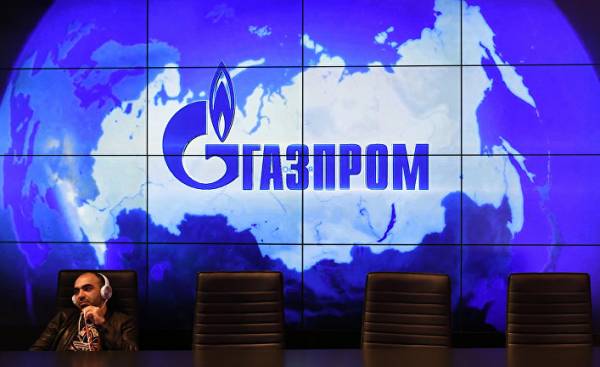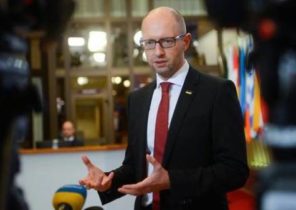
Wintershall, the largest oil and gas group continues to cooperate with Russian gas giant Gazprom, despite possible sanctions from the American side. In particular, according to the Chairman of the Board Mario Meren (Mario Mehren), Wintershall intends to implement a controversial project “Northern stream — 2”, in which Europe needs to get more gas. “Even in the difficult from the point of view of policy, we value our German-Russian economic partnership,” said Meren in response to the request of our publication after the President of the United States Donald trump on Wednesday signed earlier by the Senate the law on anti-Russian sanctions.
Wintershall, subsidiary of BASF, have long been closely cooperating with Gazprom. For many years, Wintershall more than half of its gas it gets from Russia. A year and a half ago, both companies have attracted worldwide attention, exchanging assets of 10 billion euros. The Russians then got all the Wintershall share in the firm Wingas, and thus mathematically access every fifth consumer of gas in Germany. BASF, in turn, received the rights to develop deposits in Siberia.
The new American law on sanctions, which criticized the European Commission and the German government, among others, mentioned the project “Northern stream — 2”. The law stated that US policy aimed at the closure of this project. At the same time indicates that America needs to increase its export of energy resources. Specifically, Americans are interested in the sale of liquefied shale gas.
According to Meren, for the sake of sanctions, we cannot neglect their own economic interests, “in particular, promoting us LNG on the European market.” Such actions are contrary to the rules of the free market. Gazprom and Wintershall have been partners, he said: “Gazprom can rely on us”. It is unclear, however, decide whether the American President trump to actually apply sanctions, and what the consequences of these “extraterritorial sanctions” can have for companies involved in the joint projects. For this reason Germany does not want to speak.
In his first statement to the press after the signing of the law trump is once again openly expressed dissatisfaction with this law, which he, according to him, signed, “to preserve national unity”. So it is possible that these possible anti-Russian restrictions he in fact does not enter. In any case, it calculates the Union of the German economy. According to preliminary estimates, the trump does not agree with the adopted law, also spoke about his Secretary of state Rex Tillerson.
In the US, it seems, has heard criticism from the EU, at least in the administration. Thus, according to the Union of the German economy, still there are chances that the negative effects of new anti-sanctions, in particular for European companies in the energy industry, will be able to minimize. It remains only to wait for the reaction of the Senate and house of representatives on this “obvious slap in the face from the trump.”
Europe needs Russia
Earlier, the European Commission and the German government managed to declare that they refuse to acknowledge the extraterritorial sanctions that violate international legal norms. “We share this position,” said Meren. Framework conditions for energy cooperation between Russia and Europe is determined, according to him, the countries of Europe. Supplies from Russia are an important part of the energy of the Old world. “Any attempt to limit these supplies threaten the energy security of European competitiveness”, he stressed. In fact, the construction of the new pipeline is causing a great deal of controversy within the EU. The supporters of this project see it as an additional step toward energy security.
Opponents, primarily the countries of Eastern Europe and the Baltic States, see the second “Northern stream” a danger to himself. In the case of the construction of the current transit routes through Ukraine and Slovakia, and also Poland will cease to be needed. According to the Polish authorities, this project will negate the anti-Russian sanctions and weaken the Pro-European forces in Ukraine. In August 2016, five Western European energy companies-partners of Gazprom after antitrust investigation, initiated by Poland, came from among the co-founders of the “Nord stream — 2”. Since then, the company, the Supervisory Board which sits the former Chancellor Gerhard Schroeder, once again entirely owned by Gazprom.
Mentioned five companies — along with Wintershall also Uniper, a former subsidiary of the Eon group, Royal Dutch Shell (Britain-Netherlands), OMV (Austria) and Engie (France) — but agreed to participate in the project worth 9.5 billion Euro, having each ten percent share.
A third of that amount, according to representatives of Wintershall, has already been transferred by the company-the operator of project Nord stream. The majority of the pipes for the pipeline have already been produced. Missing permission as hopes Wintershall will soon be obtained, because the second branch is laid parallel to the first. Next year the construction of the pipeline is 1,200 kilometers should begin. If all goes well, and the US will not follow the sanctions in 2019, the construction should be completed.







